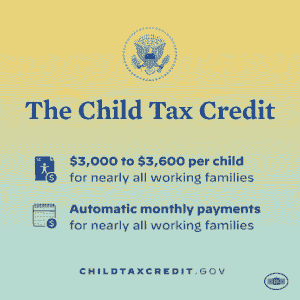Essential revisions were made to the country’s tax legislation as part of the COVID-19 relief plan. Multiple U.S. residents gained extra Child Tax Credit relief, which was given out as monthly payments of up to 300 dollars per child.
For the tax year 2023, the Child Tax Credit is planned to stay at 2,000 dollars per eligible child, without any upfront monthly payments.
Last tax year 2022, the Child Tax Credit was decreased to 2,000 dollars per eligible child, and the 300 dollars advance monthly installments were no longer obtainable.
Additional families including those without recent income now qualify for and acquire budgets from the Child Tax Credit (CTC), due to a quick change in the law.
Now, what is a Child Tax Credit?
The Child Tax Credit is also known as CTC is a tax credit provided to taxpayers with dependent children under the age of 17. You must verify to the IRS that you and your child meet certain conditions to claim the credit when you file your taxes.
After a specific maximum is reached, the credit fades down in increments. For that reason, you’ll also need to verify that your salary is below that level. If your modified revised gross income is higher, your credit may be decreased or you may lose eligibility entirely.
Are all parents qualified for receiving Child Tax Credit?
No. To be qualified for the Child Tax Credit, parents must file taxes and meet certain income and residency standards.
The residency standards are met by parents with children who are 16 years of age or younger on the last day of the year and maintain their primary residence in the U.S. for more than half of a year. Federal workers and members of the US military serving overseas are also eligible for the claim.
The Child Tax Credit has income regulations that must be met. An eligible parent must earn the following modified adjusted gross income (MAGI) as of 2023:
- For people filing as a head of household, single, or married but living apart 200,000 dollars or less must be their adjusted gross income.
- For married couples, if they file jointly 400,000 dollars or less must be their adjusted gross income
The IRS paid a ratio of the Child Tax Credit in advance for a portion of 2021. Both in 2022 and 2023, those advance payments were not scheduled to be made in general.
Even though there are ongoing political initiatives to develop the monthly Child Tax Credit payments, a change does not occur likely at this time.





